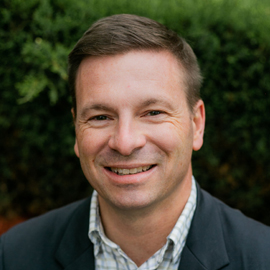
John Pepperdine
Here’s one fundraising takeaway I’d love to share: do NOT go to the Dark Side of fundraising, go to the light!
If you’re a fundraiser — a university president, volunteer for your kids’ school, or seasoned professional — you all share one common enemy: the very dark and evil side of fundraising. This insidious and seemingly all-powerful entity is lurking in your database, fundraising appeal email, and represented by the fear of making a personal connection. Don’t give in to it, and don’t ignore it (see Fundraising Winter is Coming).
That evil is what I call the dark side of fundraising, “the transactional relationship.” A relationship where donor’s names are misspelled or not used at all! Where donors are not asked why they give and if they’d like to do more. The dark side sits in the space where we forget to invite donors to meet us or see the people we’re helping.
Think I’m making too much of this? Consider what turns you off. What prevents you from wanting to get more involved in your favorite cause, school, university, or nonprofit. It’s when someone treats you like a number, a file, or just one more email. They don’t look at where, how, how often, or how they make their contribution (mailed donation, payroll deduction, donor-advised fund, multi-year pledge, online contribution, etc.).
Now think about the institutions and nonprofits that reach out to you who reach out to you and make you want to read more, talk with them, and give more (see: 10 Steps to Better Donor Engagement). Typically, they’ve genuinely thanked you in a meaningful way. They’ve share compelling stories or facts that make you feel great about being a “part” of the solution.
So, you want to go to the light side, but how? Well, as much as I would love to solve this problem with a single 500-word post, I’m pretty sure I can’t. But I can give you ONE guiding principle to stick to that I promise will make a difference, and possibly the most significant difference you’ll ever see!
Go to the Light!
Again, instead of the dark side (transactional relationships, treating donors like a number, not thinking about how you manage the relationship), go the “light side,” and build genuine relationships! How? Here’s a start:
Annual appeals: find out if they give to specific areas and ask them to give to that area again while sharing what else can be done if they choose to give more.
Weekly thank-you from a PERSON: Know your top 1% of your donors and call them. It’s an easy call because you’re merely thanking them and asking if they’d like to learn or do more. And know, just be you! (see: Fundraising Truth: I’ve Never Talked Anyone into a Gift).
Manage data: “Administrative Hygiene” is rarely fun or exciting to discuss, but necessary. One easy and vital action you can take immediately to join the light side of the database is to review your top 1% records (see: “How We Solve the Fundraising Mystery). I guarantee you will find errors or spot key enhancements that will help you develop relationships better.
These are just three examples, but I hope they show you how powerful the dark and light side of fundraising can be. Join the light side; stop treating donors like they don’t matter. Manage their data, talk to them, and respect their giving history. I promise all of this effort to personalize your relationship with donors will significantly improve your fundraising.



